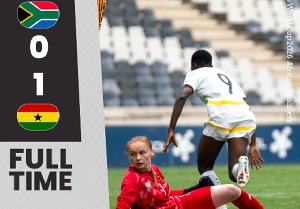While rebasing has been a blessing and a source of enhanced domestic revenue mobilisation for accelerated growth of the economies of other countries, under Akufo-Addo and Bawumia, it is turning out to be a fiscal nightmare and threatening to be a curse that can consign the future of Ghanaian children into servicing and paying of debts without anything to show for it.
The Member of Parliament (MP) for Bolgatanga Central, Isaac Adongo, expressed this worry following the revelation by the Bank of Ghana (BoG) that the country’s public debt had rising to GH¢172.9 billion, representing 57.9 percent of GDP as at the end of November 2018, up from GH¢171.2 billion (57.3percent) recorded in October, same year.
In September 2018, the Ghana Statistical Service completed its survey and analysis to determine the true income of the country as contributed by all the sectors of the economy.
In the process, it concluded that about GH¢49.8 billion of the country’s incomes had not been properly captured in the GDP.
“This meant that about 24.6% of our collective income from our daily productive work had either not been captured or properly valued.
This was generally good news. It meant that we had found new “money,” so to speak, earned by Ghanaians and available to be taxed to contribute to the revenue of the country to fund government programs such as Free SHS, One village, One dam, other infrastructure projects and improved social service delivery, Mr Adongo explained.
“Unfortunately, however, data released by the Bank of Ghana reveals that the government has decided not to mobilize revenue from this expanded income base of the country but rather goes on reckless borrowing (supported by an artificial ‘lower’ debt-GDP-ratio) with the believe that future generations will find ways to mobilize this revenue from the expanded income to pay for the debts it is accumulating”.
He added: “Yet, while future generations will be inheriting these debts incurred by Akufo-Addo and Bawumia, they are not getting any assets such as infrastructure and improved social service delivery to console them”.
This is a very sad waste of this “new income” that we have found to help us be self-reliant, reduce borrowing and if you like, build a Ghana beyond aid, to quote one of Akufo-Addo and Bawmia’s superfluous slogans, Mr Adongo who is also a financial analyst lamented.
He continued: “The data available suggest an alarming trend. It suggests that while our neighbors are mobilizing 20% to 22% from their national income to support development of their countries for current and future generations, we are sleeping on this income with an average of 16% of mobilization of national income to support development”.
“The government does not seem to know that expanded GDP is only relevant if you can mobilize a significant part of it for development. Rather, they have resorted to using it to promise the world that our incomes are increasing and we have found new income so lend us more money for our children, the future generation, will find a way to mobilize that money to pay the lenders. This is unfortunate”.
What is even more painful is that when they take the loans, they do not invest in what will help these children (and I challenge the government to show proof of any single productive project since it came into office in January 2017) in future but they rather consume it and look to package another loan request to the world.
“Since we do not have our debt statistics up to December 2018 (which is questionable), I will try to find an annual pile up of debt from available data. Between November 2017 and November 2018, the government added GH¢33.6 billion to our public debt. That is just within 12 months – one year!”
At this rate, the country is heading towards adding some GH¢70 billion to our public debt in two years. This means the country would have wiped off the GH¢50 billion additional income (that resulted from the rebasing of GDP) in debts.
“Additionally, we would also wiped off GH¢20 billion more in debt from any additional income we generated from the expanded output of crude oil from the three oil fields that Akufo-Addo and Bawumia inherited.
This borrowing spree has been motivated, wrongly, by the enhanced GDP, which ensures that the large debt is still lower in percent terms to the rebased GDP”, the MP noted.
“No wonder the government finds comfort in pointing to a ‘lower’ debt-to-GDP ratio as reason for comfort, however, deceptive.
The reality behind that is that in two years, Ghana will be on the streets in search of a new story to tell our lenders after reckless two years of unprecedented borrowing with nothing to show for it other than our stomachs (consumption)”.
Business News of Tuesday, 29 January 2019
Source: africaneyereport.com













